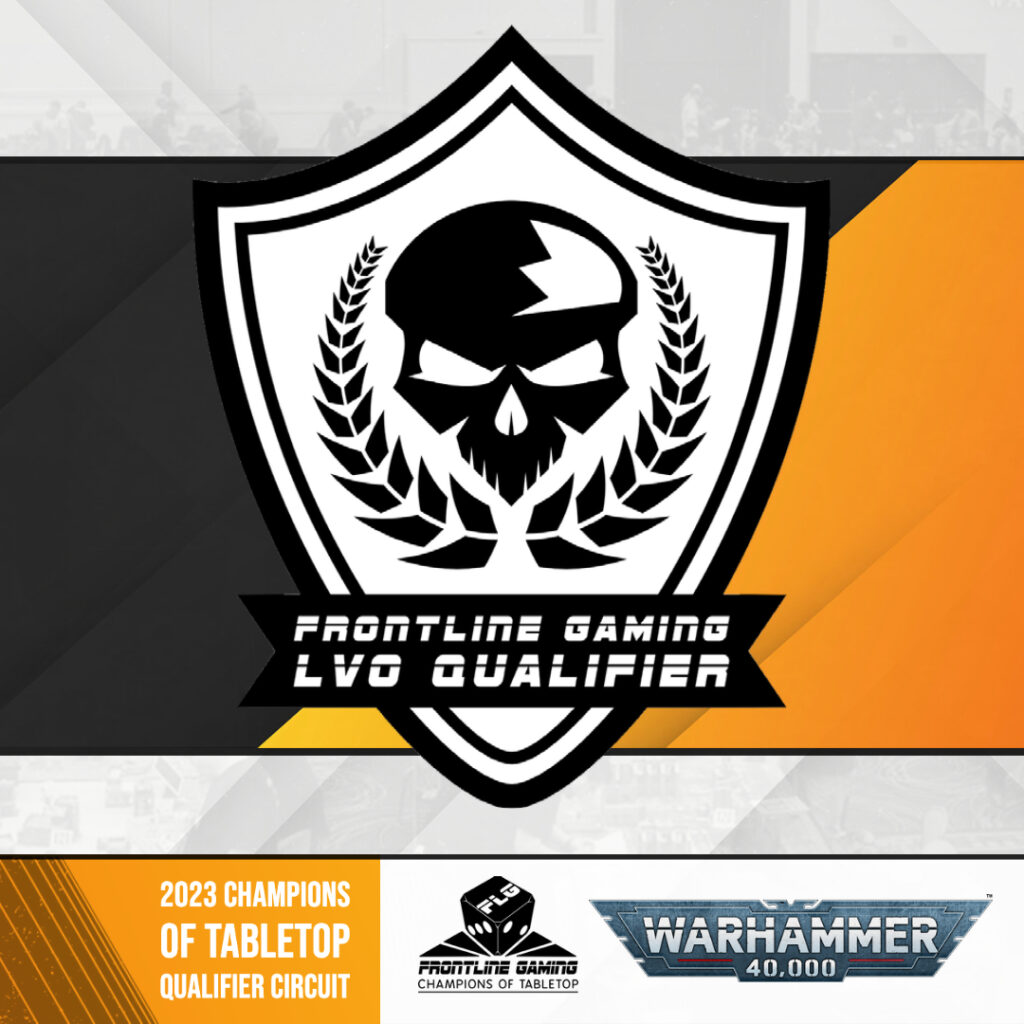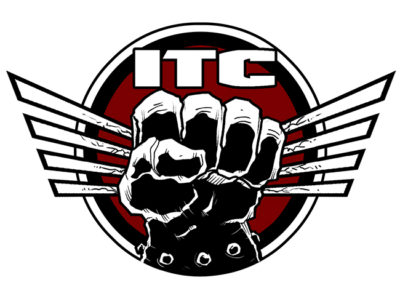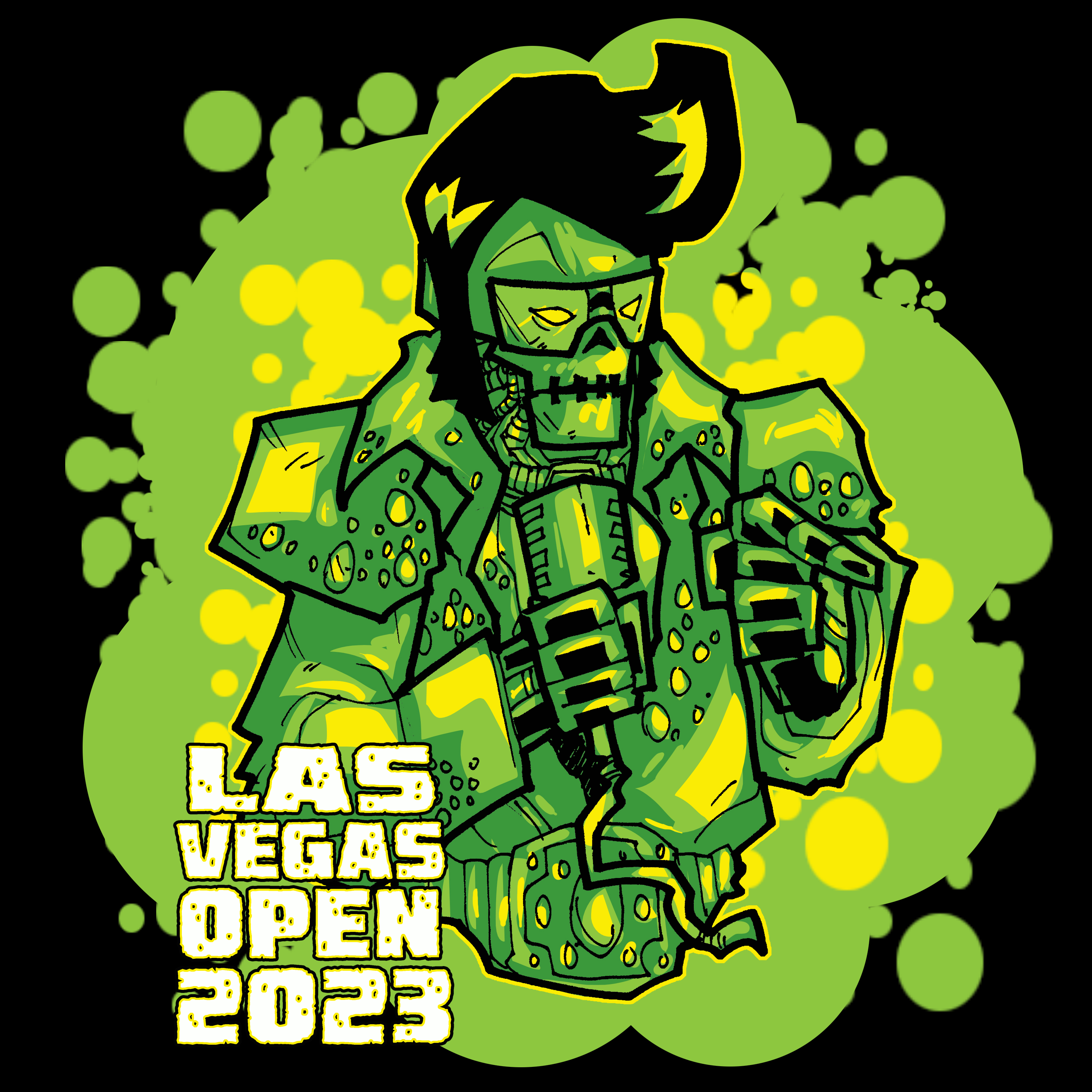Hey everyone, Danny from TFG Radio here, and while it’s been some time since my last article, I had to dust off the keyboard and get right into the news of the day: the LVO Qualifiers! Overall, I’m excited for this new direction that will ultimately make competitive 40K a richer place, for everyone!
So, if you’re unfamiliar, I’m one of the Associate Head Judges for FLG and LVO, and so this whole LVO Qualifier is right in my lawn, but while change is scary, I see a few reasons why this is such a positive for LVO and competitive 40K.
You can read the Qualifier here, but the long and short of it is that specific events with the Qualifier classification gives you a chance to earn Byes (free wins) at LVO. There are criteria for an event being a Qualifier, but if you go to one and win, you have the chance to earn up to 3 Byes for the next LVO. How many byes is determined by your ITC rank and how many qualifiers you have won.
You may say “this just makes life better for the best while hurting the average player”, and my Siblings in Khorne, you are mistaken. Let’s see why.
1: Top Players don’t really lose in Rounds 1-3, except to each other.
Let’s talk turkey for a moment: the players who are going to get the byes are Sharks, the best of the best, and having judged LVO since 2016, I can tell you the top 25-100 ITC players rarely, rarely lose rounds 1-3 unless they pair into another top player. Looking at the ITC top 25 right now, you have folk like Mani Cheema, Jack Harpster, David Gaylard, Brad Chester, John Lennon, and that’s just a few. These are players who are at the top of their game, and while we all love to cast shade at our dice, you don’t luck your way into the top of the ITC, you have to demonstrate remarkable skill. These are amazing players, and the average player is at clear disadvantage in the head to head.
What this means is that a few sharks are taken out of the first few rounds, meaning you don’t have to worry about getting blasted off the table by a top player round 1. LVO is huge, but the vast majority of top talent do show up, so while the ocean is deep, there be monsters, and this helps keep them at bay for the first day. People will incredibly high ITC Ranks earn them, so the ones who are getting 2 or 3 byes are the ones who are going to be at the top 1-2% of the whole ITC. This again rewards those players that really do dedicate to competitive 40K. It takes a lot of games, a lot of travel, and a lot of hard work to make it this high into the ITC, and this gives some acknowledgement to that level of dedication.
Really, most players won’t notice any difference in their tournament experience, and if they do, it’s likely that they didn’t have to get ROFLstomped by a big name on day 1 at the largest 40K tournament in the world.
2: There are a lot of events, and qualifiers provide an additional way for those that really dedicate to their events to get noticed and rise above.
If you are an old head like me, long before FLG and ITC helped usher in an unprecedented expansion of competitive play, you remember when events were rare, but today, it seems like there are events every weekend. This is great, but how do you stand out? The Qualifier system provides an extra level or visibility for events, and since an event has to meet certain standards set out by FLG, you know you are getting a quality experience.
For those TOs that really put the extra effort in, they’ll get the opportunity for more visibility, drawing from a larger regional pool, and of course, getting some love from the content farms of players competing to get those byes as well as FLG itself. As someone who helps run several regional GTs, if we can snag a Qualifier, it can really help us stand out in the sea of regional GTs.
Sometimes, you only get one weekend in a month to play, and you have to choose which event to attend. A Qualifier has an FLG stamp of approval, meaning you know the event has a certain quality to it, information that can be missing when you have to decide between several events near you in the same month.
So what about smaller or newer events? Don’t they get hurt by this? Not really as ITC points still matter, and if you are a player who really is gunning for a chance to win a Qualifier, a non-qualifier becomes a great place to experiment with lists and try new tek without worrying about losing out on a Qualifer win.
3: Most sports have a similar system to reward those players/teams that excel
This isn’t a novel idea; it really is FLG keeping in line with other competitive systems. MTG awards byes to players who have demonstrated great success in the season. In most professional and even recreational sports leagues, teams earn first round byes in the playoffs as a reward for sustained, excellent play. That really is what the Qualifier does; it rewards sustained, excellent play, which is what the ITC was created to do.
4: This doesn’t make ITC points less; it can encourage more.
Part of point 2, this doesn’t make any other tournament less important because you can win a qualifier but not get the Bye. You still have to battle your way into the top of the pack if you want more byes, and the only way to do this is to attend events. Right now, the 383rd person in the ITC has only 5 events, but it takes into the 1000s to get to the point where you see consistently 4 or 5 games out of 6. What does this mean? It means that to get to the top level of ITC rank where you are getting more than 1 bye, you have to play events, not just win a qualifier and then cruise. You can do that if you just want to sleep in on round 1 of day 1 (which is awesome), but if you want the full benefit, you have to do some work. This puts the impetus on players who want to chase this to go out and play in events, Qualifier or not. This increases the desire to go out and play, which means more players willing to travel. That equals more people playing. A rising tide lifts all ships.
5: For content creators and consumers, it can help craft more interesting narratives.
Let’s also be real: the content creator market is firmly part of 40K now. Plenty of us listen to podcasts (or have podcasts, really) watch battle reports, live streams, or even purchase coaching services. And yes, sometimes this content gets stale, but for those that are really dedicated to chasing the bye, this gives a structure for content creation. You can follow along with the drama of whether they stay in the top 25 relative to the other winners or not, which Qualifier they win, how many points they need, etc. This structure provides ample opportunity for new narratives that provide personal flavor, a sense of progression, and in general, better content for creators but also us, the consumers. FLG will certainly be following those who win Qualifiers, so this is a way to get some extra visibility for smaller content creators who manage to snag a Qualifier win.
So overall, yes, really only a small handful of players will see any difference, but there are larger influences, for the positive, for everyone. Plus, for those who remember FLG and the ITC over the years, adaptation and change is part of the DNA, and even this will adapt and change as necessary to make competitive events even better, just as FLG set out to do so long ago.
I look forward to seeing folk at LVO 23, and be sure to say hi!
#mc_embed_signup{background:#fff; clear:left; font:14px Helvetica,Arial,sans-serif; } /* Add your own Mailchimp form style overrides in your site stylesheet or in this style block. We recommend moving this block and the preceding CSS link to the HEAD of your HTML file. */And remember, Frontline Gaming sells gaming products at a discount, every day in their webcart!










Great write up, Danny.
🙂
-Casey